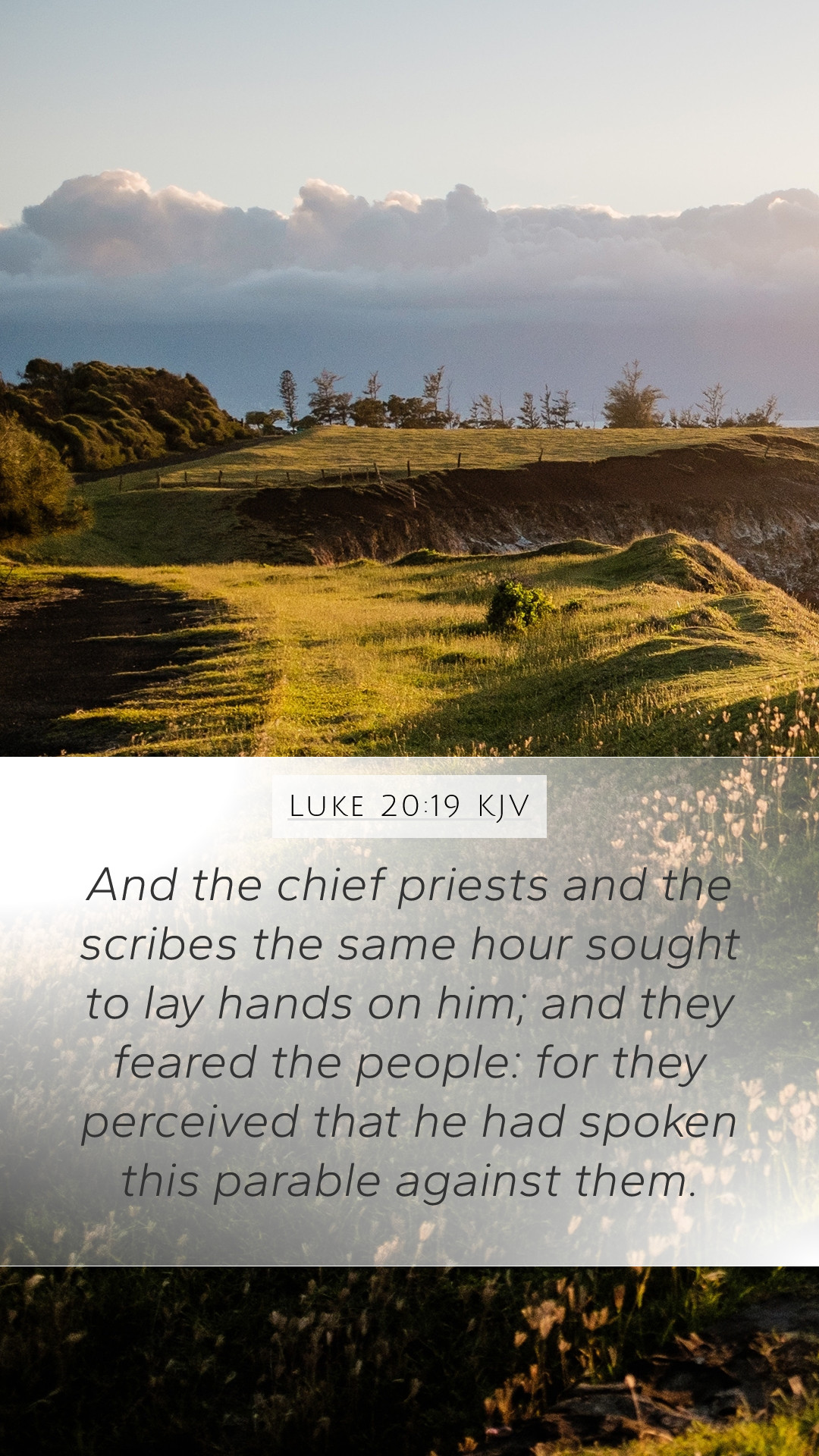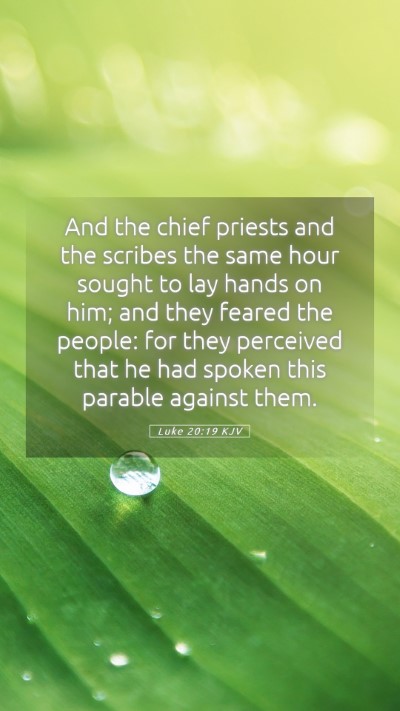Understanding Luke 20:19
Luke 20:19 states: "And the chief priests and the scribes the same hour sought to lay hands on him; and they feared the people: for they perceived that he had spoken this parable against them."
This verse captures a significant moment during Jesus' ministry, highlighting the tension between Jesus and the religious leaders of His time. Below, we explore its meaning through various public domain commentaries.
Bible Verse Meanings
The verse reflects not only the actions of the religious leaders but also the broader implications of Jesus' teachings and the opposition He faced. Various commentaries provide insights that facilitate a deeper understanding of Scripture.
Matthew Henry's Commentary
Henry explains that the chief priests and scribes recognized that Jesus' parable was directed at them, which ignited their animosity. His commentary emphasizes the idea that Jesus' words threatened their authority, leading to their intent to silence Him. Henry notes:
- The Parable's Impact: The parable Jesus told highlighted the failure of the religious leaders to recognize God's messengers and the consequences of their rejection.
- Fear of the People: The rulers' fear of the people's reaction indicates their awareness of the popular support Jesus held.
- Opposition to Truth: This moment exemplifies how opposition to truth can manifest through fear of loss of power.
Albert Barnes' Notes
Barnes provides a historical context that enriches the understanding of this verse. He elaborates on the motivations behind the religious leaders' actions and the symbolism of the parable:
- Historical Context: This conflict arises as Jesus is nearing His crucifixion, representing a culmination of the increasing hostility toward Him.
- Symbolism in the Parable: Barnes points out that the parable serves as a prophetic indictment against the leaders for their unfaithfulness.
- Public Perception: The notion that they feared the people underscores the dynamic nature of crowd influence in their decisions.
Adam Clarke's Commentary
Clarke's analysis focuses on the social and theological ramifications of the verse. He highlights:
- Divine Authority: The verse signifies the challenge Jesus posed to established authority, emphasizing His divine mission.
- Judgment against Leaders: Clarke interprets the parable as a foreshadowing of the judgment that would come upon unfaithful leaders.
- Reaction of the People: He notes the significance of the people's support for Jesus as a turning point in His ministry.
Application of Luke 20:19
Understanding this verse is crucial for modern believers. It invites reflection on the nature of true leadership, the importance of heeding God's message, and the societal dynamics that often influence spiritual decisions.
- Assessing Our Leaders: The verse encourages believers to discern the integrity and faithfulness of spiritual leaders.
- Responding to Truth: It serves as a reminder to remain responsive to God's truth, even when it challenges our preconceptions.
- Valuing Public Opinion: The dynamics of the fear of people can lead one to compromise principles; thus, it is essential to remain steadfast in faith.
Related Bible Verses
Several other passages resonate with the themes of Luke 20:19:
- Matthew 21:33-46 - The parable of the wicked tenants, emphasizing consequences for rejecting God's messengers.
- Mark 12:1-12 - Similar to Matthew's account, it discusses the rejection of the servants and the son in God's vineyard.
- John 7:13 - Highlights the fear among the people regarding openly discussing Jesus.
Conclusion
Luke 20:19 offers profound insights that continue to resonate today. Its examination through various commentaries enriches our Bible verse understanding, providing a multi-faceted view of the implications of Jesus' ministry and the responses of those in power. This verse challenges believers to embrace truth, assess leadership critically, and recognize the power of their faith in societal dynamics.
In conclusion, this verse illuminates the challenges of adhering to divine truths in the face of opposition. For those engaging in Bible study groups or seeking online Bible study resources, this verse serves as a pivotal point for discussion and reflection.


